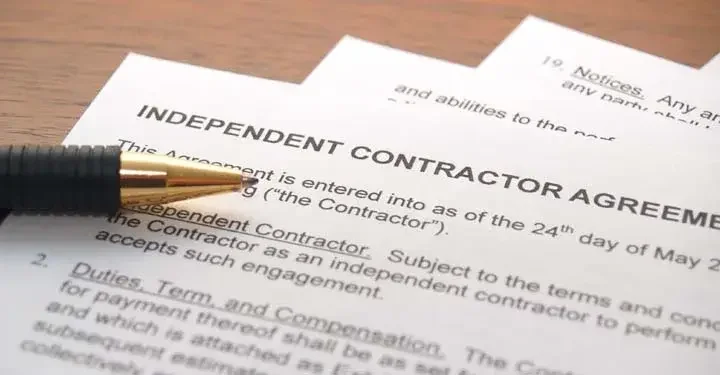When you're hiring someone to help your business with a project, it's important to enter into an independent contractor agreement that sets out the terms of the contract between your business and the independent contractor you're hiring. Having the terms in writing reduces the chances of future conflict because everyone is clear about essential matters such as the work to be done, the compensation that will be paid, and the time by which the work needs to be completed.

The independent contractor
When hiring someone to take on a project for your business, it's important that you make sure you're hiring an independent contractor and not an employee.
The distinction between the two is particularly important from a tax perspective. When you're hiring an employee, you are responsible for withholding income taxes and paying employment taxes on your employee's wages.
The independent contractor, on the other hand, is self-employed. They may be a sole proprietor, or they may be a small business owner, operating their business as an LLC or a corporation. When you hire an independent contractor to complete a project for you, they are responsible for things like their taxes, insurance, and, in many cases, the tools that are required to complete the task.
What an independent contractor agreement is
A basic independent contractor agreement should include a number of essential terms, such as:
- The parties to the agreement. The agreement should set out who is doing the hiring, and who is performing the work described in the agreement.
- The work to be performed. There should be a detailed description of the work that's required to be done.
- Independent contractor status. It's important to state in the agreement that the individual you're hiring to do the work is being hired as an independent contractor, and not as an employee.
- Payment terms. Your agreement should include not only the amount of compensation, but also when and how it will be paid.
- Delivery or completion date. If you require the work to be done by a specific date, this also should be included in the agreement.
- Termination of independent contractor agreement. A termination clause should set out the conditions in which either party can terminate the agreement. This usually includes the period of notice that might be required.
- Dispute resolution. This term outlines what will happen if you and your independent contractor come into conflict over some part of the agreement. For example, the agreement might require that any disputes between the parties be subject to mediation or arbitration.
Going beyond the simple independent contractor agreement
Depending on the nature of the work to be performed, it can also be a good idea to include in your agreement a number of optional terms and conditions, including the following:
- Confidentiality or nondisclosure clause. If the independent contractor will gain knowledge of confidential information or trade secrets while working on the project, a confidentiality or nondisclosure clause helps to safeguard your business secrets.
- Noncompete clause. This clause prevents the independent contractor from setting up a business that will compete with your company within a stated time period after completing the work outlined in the agreement.
- Nonsolicitation clause. With a nonsolicitation clause in place, the independent contractor cannot take away either your customers or your employees for their own business.
Creating an independent contractor agreement
Once you know what terms should be included in a standard independent contractor agreement, putting one together that will work for you is not a daunting process. There are independent contractor agreement forms online that you can download as a starting point for structuring your own agreement. There are also easy-to-use independent contractor agreement generators that will take the information you provide and put it into a finished contract for you. You can also use an online service provider to help guide you through the process of creating the agreement.
Customizing your agreement
Once you have a basic agreement to work with, you can customize it to suit your specific needs. If you're stuck on the particular wording you need, search online for sample independent contractor agreements that deal with the issue you want to address. For example, if your business is a nonprofit organization, a sample nonprofit independent contractor agreement might give you ideas as to what should be included in your own agreement.
As a small business owner, you'll often find that hiring an independent contractor can be the easiest way to get the work you need done. While it might seem efficient to have the work proceed on the basis of a handshake alone, having an independent contractor agreement in place is the best way to protect your company from future conflict and liability.

